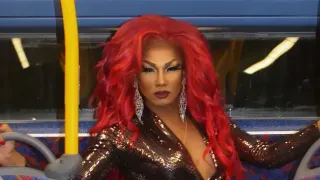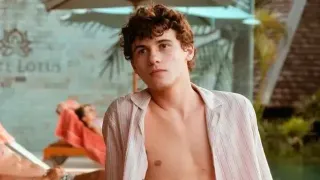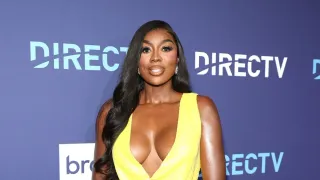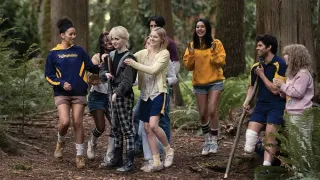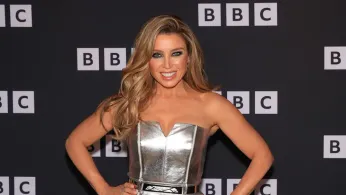
3 hours ago
Dannii Minogue on Allyship, Visibility, and Risk
READ TIME: 3 MIN.
In a candid and heartfelt interview with Attitude, Dannii Minogue revisited the pivotal moments that shaped her reputation as one of the LGBTQ+ community’s most passionate allies. The Australian singer and television personality became a touchstone for queer representation at a time when the risks of public support were tangible and career-threatening. Minogue recounted her first performance at London’s G-A-Y nightclub in the 1990s, an era when such a move was considered professionally perilous. “Jeremy Joseph asked me would I come and perform because nobody else would do it. And I said yes because that’s because I wanna be out playing music. I wanna listen to the people. I wanna dance,” Minogue told Attitude, underscoring her instinctive commitment to the community over industry warnings that her career might suffer as a result .
Her recollections highlight a time when major record labels and management discouraged both queer artists and their allies from public association, warning that “no one wants to know about it. You will be dropped by your label. Nobody will want to buy your record. Radio won’t play you.” Minogue’s decision to ignore these warnings was, she says, “never a tough decision,” driven by her desire to be present with her fans and to foster a sense of belonging for LGBTQ+ audiences .
Fast-forward to the present, and Dannii Minogue’s legacy continues with her role as host of the BBC Three dating show “I Kissed a Girl.” The series, which she describes as “groundbreaking,” marks the UK’s first unscripted dating show for women who love women. Minogue emphasized the importance of authentic and unscripted representation, stating, “It’s important that queer women and lesbians are represented in every facet, but particularly in this show because it is unscripted. They are absolutely uninhibited and they’re just being themselves” .
Her involvement has been widely celebrated in the queer community, with the show’s launch drawing praise for its joyful, unfiltered depiction of love between women. The atmosphere at the show’s premiere was electric, attended by notable LGBTQ+ figures and supporters, further anchoring Minogue’s role as both an ally and a creator of safe spaces for queer joy .
Minogue’s commitment to LGBTQ+ rights is rooted in her personal and professional experiences. Speaking to GAY TIMES, she explained that her relationship with the community “really started meshing in with work for me, through music,” and that moments such as her first G-A-Y performance became defining milestones. “I’ve always had friends in the community… Going back for so many other performances, with queues around the block and spending so many birthdays there… It was the best,” she shared . Her advocacy extends beyond performance: Minogue has called on LGBTQ+ young adults to become ambassadors for Just Like Us, a youth charity supporting queer representation and education in UK schools. In a public message, she encouraged, “Be the representation you never had, and sign up now!” .
The impact of her allyship has been repeatedly acknowledged by LGBTQ+ organizations. Laura Mackay, Chief Executive of Just Like Us, credited Minogue’s visibility and advocacy with making “growing up LGBT+ a better and safer experience for LGBT+ young people across the UK,” particularly in a context where queer youth are still disproportionately targeted by bullying .
Minogue’s story is emblematic of the ongoing struggle for visibility and acceptance, both within the entertainment industry and society at large. Her willingness to risk commercial success for the sake of allyship in the 1990s stands in sharp contrast to a more recent climate, where LGBTQ+ representation on-screen and in the media is increasingly, though not universally, celebrated. As Minogue told The Big Issue, her activism has never been about ticking boxes or self-promotion, but about doing “stuff that I enjoy with people I like being with. And I’m definitely drawn to things that are sparkly and queer and unique and fabulous” .
Her journey is a reminder that allyship is not a static identity but a series of actions driven by empathy, courage, and solidarity. For Minogue, the work continues—both in her high-profile projects and in her everyday interactions. By leveraging her platform, she amplifies marginalized voices and provides tangible resources for LGBTQ+ youth, advocacy organizations, and media creators.
As the conversation with Attitude demonstrates, Dannii Minogue’s allyship is as relevant and necessary now as it was at the start of her career. Her story offers both a blueprint and an inspiration for allies and advocates everywhere, emphasizing that authentic representation and support can change lives—and sometimes, even the course of an industry.

